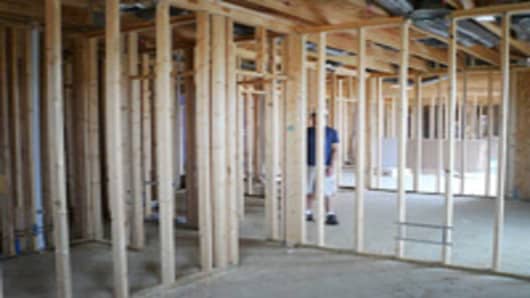While the Fed chairman talked a lot about the credit barriers for homebuyers, he did not discuss the credit crunch for homebuilders.
Last year was the worst on record for the nation’s builders, in sales and starts, but demand is slowly returning, and the concern is that when demand really surges in the coming years, there will be too little supply to meet it.
“There will be a shortage that will create inflation,” says Wade McGuinn, of South Carolina's McGuinn Homes.
With acquisition and development (A and D) loans from the big banks gone, the only way for builders to finance new development now is through private equity, smaller community/regional banks or self-financing. That last one gives the big public builders a huge advantage, as they have been stockpiling billions of dollars in cash during the housing downturn. Not so for the smaller private builders, who have downsized dramatically and built individual homes to order.



